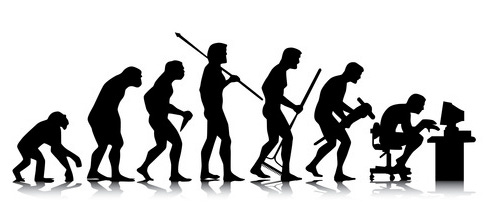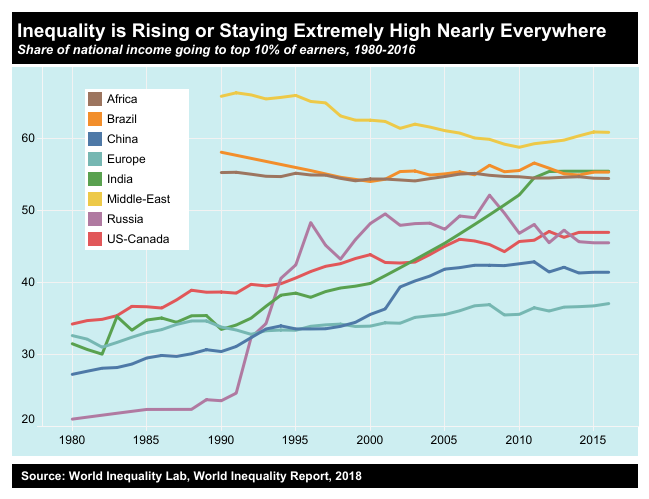Welcome to "The Tech Effect"
A newsletter exploring technology, social media, and the future of the human race.

Welcome to The Tech Effect, a weekly newsletter by Oren Weisfeld.
Before we get to what this newsletter is or how it came to be, let’s talk about progress:
Progress is a concept historically associated with improvement or positive change. It’s a word used to describe human evolution and our developing relationship with each other and the planet. We progressed from cavemen to hunters and gatherers to city folk; from landlines to cell phones to smartphones.
Technological progress has come to represent the primary goal of modernity. We have come to view time as a straight and predetermined line with technology the motor propelling us forward towards a pre-oriented end. That end is the singularity: a hypothetical time when technological growth becomes uncontrollable and irreversible; a world where humans and machines are one, living happily in a utopian future. In this view of time, progress is destiny, and destiny is the essence of human history. Human action, therefore, is thought to be unimportant in determining the future.
Only that utopia never comes: It’s always deferred; always in the future. It’s a technified myth, one instrumental to political mobilization on behalf of the powers that be and disseminated to mobilize the working class in the service of a specific socio-economic end. The singularity myth helps to perpetuate the status quo, which is capitalism and the uninterrupted growth of capitalism.
But if the singularity is a myth, then progress isn’t always a positive thing. Technological progress is not leading us towards any predetermined end. Instead, our technologies are creating wholly new ways of life that leave us in a constant state of flux, with two eyes towards the future and none in the present.
Recently, a lot of us have come to realize just how deeply embedded our technologies are within our lives, shaping our actions in ways we could have never imagined. But if we want to reverse this trend before it’s too late — if we want to take back our freedoms and create the world we want — we have to understand that progress is not always a positive thing. Progress for the sake of progress can actually be incredibly dangerous, especially when it comes to technology.
So, what is this and how did we get here? Let’s start at the beginning (AKA 2013 because my memory doesn’t go back further than that)...
Like most people coming out of high school, I had no idea what I was passionate about or what I was good at, much less what I wanted to do for a living. I only knew that I did not want to stay in Toronto and that Western University offered a degree called Media, Information & Technoculture (a complex way of saying we critiqued the media and technology). I chose the program thinking I might get into marketing and boy could I have not been more wrong.
I could have never imagined the effect the program would have on the way I see the world, but then again, I could have never imagined so many of the seemingly far-fetched theories that we studied coming true so soon. Yet here we are in the year 2020 and when I look around all I can see is invasive technologies along with a new religion of technological worship and, unlike most people, I don’t think it’s such a good thing.
After recently watching The Social Dilemma on Netflix, I realized that my underwhelmed impression of the documentary was that of an outlier: that most people liked it and were genuinely taken aback by the revelations it exposed. I thought it could have gone much deeper into the other side of data-gathering, including how companies in all sectors are using the techniques employed by social platforms to gather and sell our data, and I thought it was hyper-sensationalized to the point where I couldn’t even relate to the characters.
How could people not already know this stuff? For example, the fact we are the product social media companies sell to advertisers? I thought. How is our knowledge lagging so far behind the technological developments when most of the information is all available on the internet? And does our lack of knowledge mean people not aware that technology presents arguably the biggest threat to our democracy, freedoms, and way of life?
They say the things that are closest to us are the hardest to see, and that is the case with technology: It’s everywhere, invading every space, and though it gives, it also takes away freedoms and essential ways of life we never thought could be lost. Yet we hardly critique it and seem to know next to nothing about its inner-workings or the people running the show. That is the disconnect that this newsletter aims to mend, uncovering some of the hidden truths behind the technological curtain while revealing the most important myths about technology in order to give you a new perspective on the tech effect.
Back to progress.
Where has technological progress and the exponential growth of technology gotten us? Have we reached the promised utopia? Are we even close? If not, who is?
Also, what social inequalities are we ignoring in the present through our pursuit of a perfect future? And how are people of colour and women disproportionately affected by the technological status quo?
The ten richest billionaires in the world own $801 billion in combined wealth, a sum greater than the total goods and services most nations produce on an annual basis. Eight out of the ten of them are in control of the biggest technology companies in the world including Jeff Bezos (Amazon), Mark Zuckerburg (Facebook), Bill Gates (Microsoft), Elon Musk (Tesla), and Larry Page and Sergey Brin (Google).
Meanwhile — with the world’s richest 1 percent owning 44 percent of the world’s wealth — adults with less than $10,000 in wealth make up 56.6 percent of the world’s population but hold less than 2 percent of global wealth.
Those with extreme wealth often accumulate their fortunes by perpetuating the myth of a utopian future, relying on disenfranchised people to work for poor wages and under dangerous conditions. We must be critical of the fact that as our technology is steadily advancing, the wealth divide between the global billionaires and the bottom half of humanity is steadily growing. Between 2009 and 2018, the number of billionaires it took to equal the wealth of the world’s poorest 50 percent fell from 380 to 26.

The Tech Effect newsletter is going to focus on the unexpected ways in which our technologies wield a Godly amount of power over us, and how we can recognize this power before it’s too late. It will answer some of the most pressing questions relating to the effects technology has on our society including: Who is our technology really helping? While our technologies have grown more and more sophisticated and attractive, has our standard of living really improved? Are we, the working class, making positive progress? Or is that reserved for the powers that be? And in which ways are we being manipulated by social media platforms and big tech companies?
This is a place for people to easily access information about technology and its effects on society; information that is both entertaining and educational.
Each week will be different. Some will explore current news or ongoing developments in the world of technology, such as explaining how Facebook and Google’s advertising algorithms work and how they influence elections and spread misinformation. Others will analyze thinkers and ideologies that pertain to the subject of technology, such as technological determinism, surveillance capitalism, cyborgs, and nihilism. Some will even feature interviews with experts in order to get new perspectives on the subjects.
I encourage you to subscribe for weekly newsletters sent directly to your email inbox and to share the newsletter with friends.
Thank you and have a great week!
